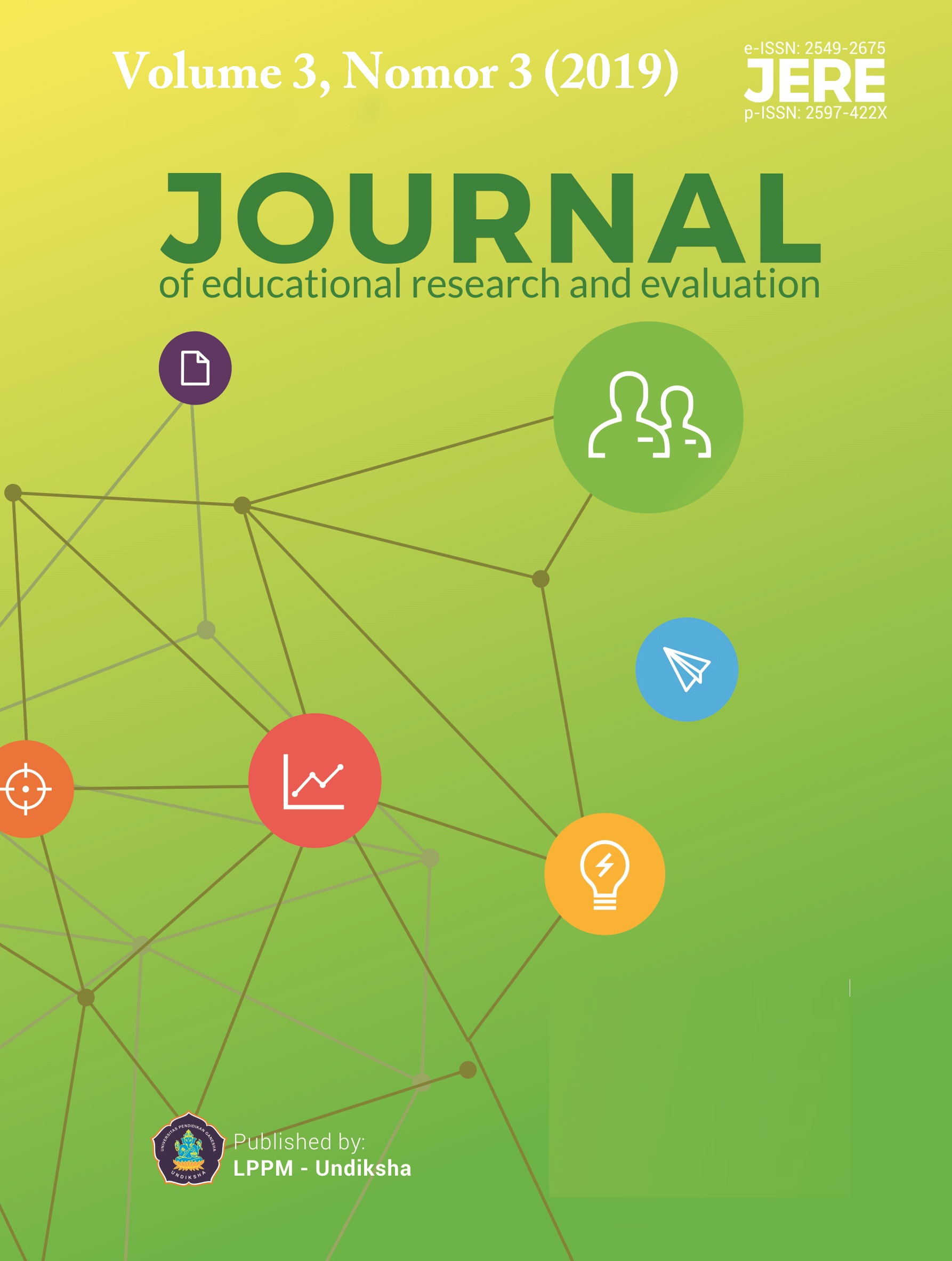Evaluation of Field Work Practice Programs with Using Logic Model
DOI:
https://doi.org/10.23887/jere.v3i3.21854Keywords:
Input, Process, Output And OutcomeAbstract
This study aims to evaluate the Implementation of Field Work Practices of SMK Negeri 1 Padang. Evaluation of Field Work Practices is seen from the aspects of Input, Process, Output, Outcome faced in the implementation of street vendors. The research method used is a combination of Concurrent Embedded design methods, combining quantitative and qualitative research methods sequentially, where in the first stage the study uses quantitative methods and in the second stage qualitative methods. The results showed that the Implementation of Field Work Practices at SMK Negeri 1 Padang Electrical Engineering expertise program as a whole included. Input evaluation according to reality obtained an average standard score of 74.27% with the Fair category, and Input evaluation according to expectations obtained an average standard score of 89.58% with the Very Good category. Process Indicators according to reality obtained a percentage level of 74.14% with the category Fair. As for the Process indicator as expected, a percentage level of 88.56% was obtained with the Good category. Output indicators according to reality obtained a percentage level of 72.65% with the category Fair. As for the Output indicator as expected, a percentage level of 89.13% was obtained. with the category of Very Good. Outcome indicators according to reality obtained a percentage level of 72.36% with the category Fair. As for the Outcome indicator as expected, a percentage level of 88.41% was obtained with the Good category. Based on the findings of this study it was concluded that the Field Work Practices program for students in the SMK Negeri 1 Padang were still in the Fair category, which needed to be improved for each aspect.
References
Ambiyar & Muhardika, 2019. Program Evaluation Research Methodology. Bandung: Alfabeta
Creswell, John W. 2014. Qualitative, Quantitative, and Mixed Method Approaches Research Design. United States of America: Sage Publications. Inc.
Ministry of Education. 2008 Prakerin Implementation. Jakarta: Director of Vocational High School Development. Director General of Elementary and Middle Education Management.
Iskandar, 2009. Quantitative Research Methodology. Jakarta: Gaung Persada Press.
Powell, T., & Heneret, E. 2008. Enhancing program performance with logic models
Sukirno Sadono, 2012. Introduction to Micro Economic Theory, Second Edition, Jakarta: PT. Grafindo Persada
Sukardi. 2012. Educational Evaluation: Principles & Operations. Jakarta: Earth Literacy.
Law No.20 of 2003 concerning the National Education System.
Wakhinuddin, 2009. Program Evaluation. Pa dang: UNP Press.
Downloads
Published
How to Cite
Issue
Section
License
Authors who publish with the Journal of Evaluation and Research in Education (JERE) agree to the following terms:
- Authors retain copyright and grant the journal the right of first publication with the work simultaneously licensed under a Creative Commons Attribution License (CC BY-SA 4.0) that allows others to share the work with an acknowledgment of the work's authorship and initial publication in this journal.
- Authors are able to enter into separate, additional contractual arrangements for the non-exclusive distribution of the journal's published version of the work (e.g., post it to an institutional repository or publish it in a book), with an acknowledgment of its initial publication in this journal.
- Authors are permitted and encouraged to post their work online (e.g., in institutional repositories or on their website) prior to and during the submission process, as it can lead to productive exchanges, as well as earlier and greater citation of published work. (See The Effect of Open Access)











